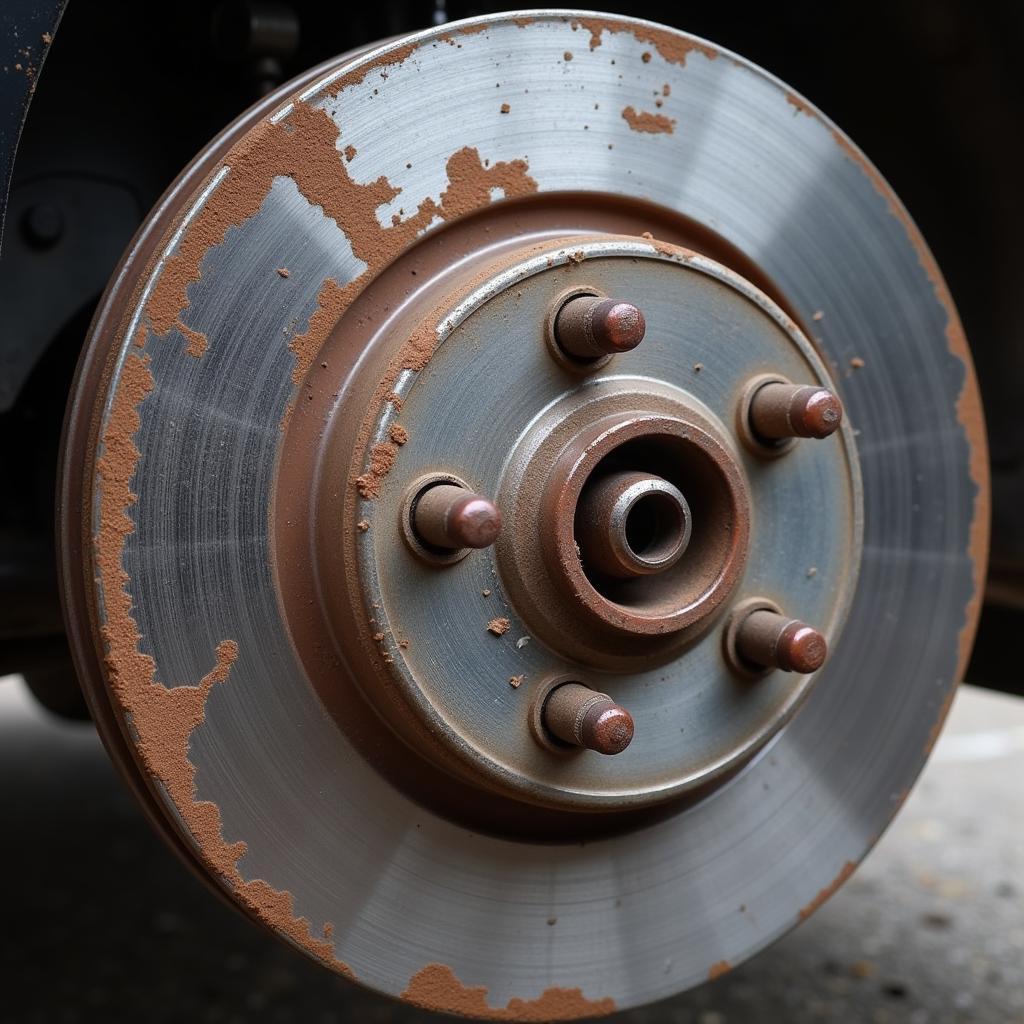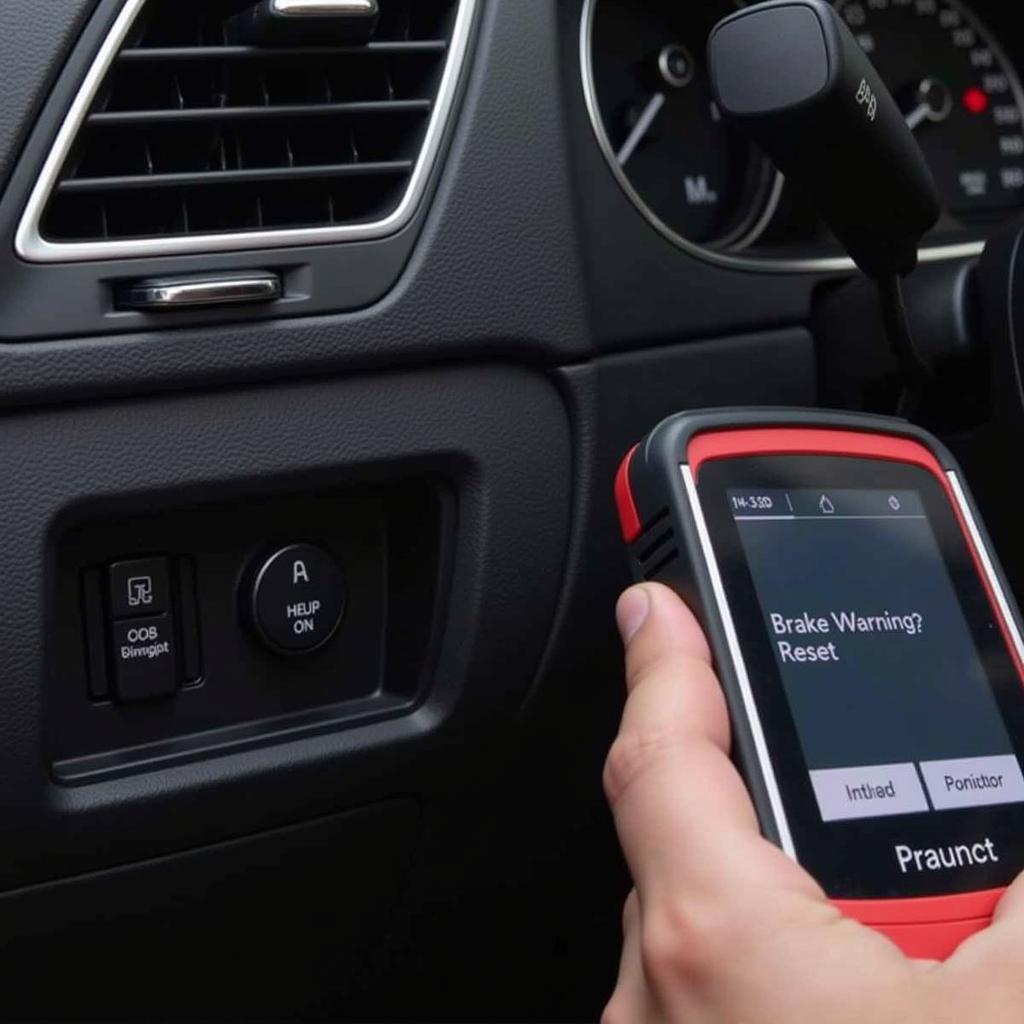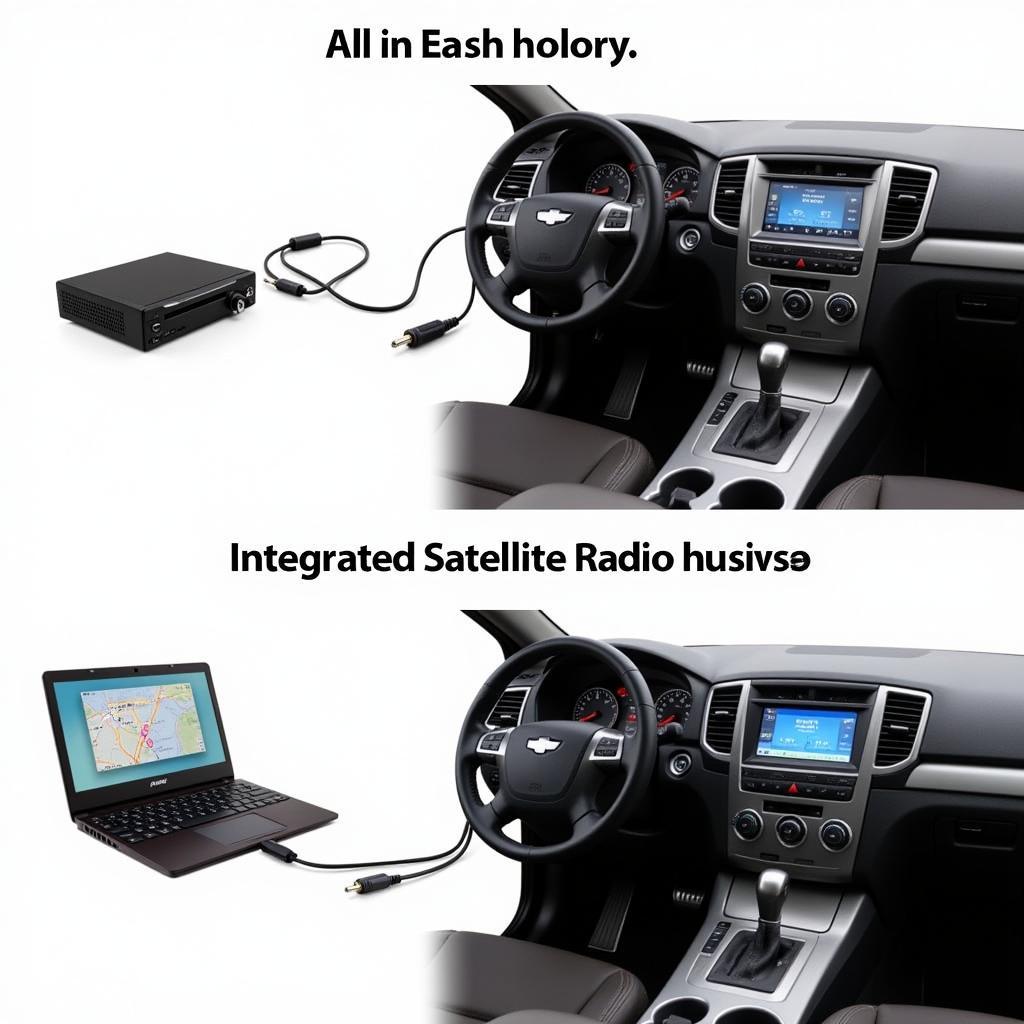The brake pad warning light on your VW Passat is a crucial safety feature, letting you know when your brake pads are wearing thin and need replacing. While it’s essential to address the issue promptly, knowing how to temporarily turn off the warning light can be helpful while you arrange for a repair. This article will guide you through the process of identifying the cause, resetting the light, and providing expert advice for VW Passat owners.
Understanding the VW Passat Brake Pad Warning Light
Your VW Passat is equipped with a sophisticated sensor system that monitors the brake pad’s thickness. When the pads wear down to a certain level, the sensor triggers the brake pad warning light on your dashboard. This light typically appears as a circle with dashed lines surrounding it and the word “BRAKE” illuminated.
Common Causes of Brake Pad Warning Light
While worn brake pads are the most common culprit, several other factors can trigger the warning light in your VW Passat:
- Worn Brake Pad Sensor: The sensor itself can wear out or get damaged over time, leading to a false warning light.
- Faulty Wiring: A short circuit or broken wire in the sensor’s wiring harness can disrupt the signal, triggering the warning.
- Low Brake Fluid: A drop in brake fluid level can also illuminate the brake pad warning light, often accompanied by the brake fluid warning light.
- Control Module Malfunction: In rare cases, a malfunctioning ABS control module can trigger various warning lights, including the brake pad warning.
How to Turn Off the Brake Pad Warning Light: A Step-by-Step Guide
Important: Before attempting any troubleshooting, ensure the car is parked on a level surface and the parking brake is engaged.
-
Check Brake Fluid: The first step is to check your brake fluid level. If it’s low, top it up to the recommended level using the appropriate DOT specification for your VW Passat model.
-
Inspect Brake Pads: Visually inspect your brake pads through the wheel spokes. If they appear thinner than 1/4 inch, it’s time for a replacement.
 Worn brake pads on a VW Passat
Worn brake pads on a VW Passat
-
Reset the Warning Light: If the brake fluid level is fine and the brake pads are not excessively worn, you can try resetting the warning light.
- Method 1: Using a Diagnostic Tool: The most reliable method to reset the brake pad warning light is using a compatible OBD2 diagnostic scanner. Connect the scanner to your car’s OBD2 port, usually located under the dashboard on the driver’s side, and follow the on-screen instructions to reset the brake warning system.
 Resetting brake warning with OBD2 scanner
Resetting brake warning with OBD2 scanner- Method 2: Disconnecting the Battery: While not as reliable as using a scanner, disconnecting the battery for a short period can sometimes reset the warning light. Disconnect the negative terminal of the battery and wait for at least 15 minutes before reconnecting it.
Caution: Disconnecting the battery can erase stored settings like radio presets and trip information.
- Seek Professional Assistance: If the brake pad warning light persists after trying these steps, it’s crucial to seek professional assistance.
vw passat brake warning light reset
When to Consult a Mechanic
While temporarily turning off the brake pad warning light can be helpful, it’s crucial to remember that it’s a safety-critical system. Ignoring the warning light for extended periods can lead to severe consequences.
Consult a qualified mechanic or your VW dealership immediately if:
- The warning light reappears after resetting.
- You notice any unusual noises or vibrations while braking.
- Your brake pedal feels spongy or goes too low.
- You are unsure about performing any of the troubleshooting steps.
“Ignoring a persistent brake pad warning light is like playing Russian roulette with your safety,” warns John Smith, a seasoned automotive engineer with over 20 years of experience. “Addressing the underlying issue immediately is crucial to ensure your and your passengers’ well-being.”
Preventive Maintenance for Your VW Passat’s Brakes
To avoid unexpected brake issues and extend the lifespan of your brake system, follow these preventive maintenance tips:
- Regular Inspections: Inspect your brake pads and discs at least every 12,000 miles or as part of your regular maintenance schedule.
- Timely Replacements: Adhere to the manufacturer’s recommended brake pad and rotor replacement intervals.
- Quality Parts: Always use high-quality brake pads and rotors from reputable brands.
- Brake Fluid Flush: Flush and replace your brake fluid every 2 years or as recommended by your VW service manual.
brake fluid warning light vw passat
Conclusion
The brake pad warning light on your VW Passat is a critical safety feature that should never be ignored. While this guide provides methods to turn off the light, it’s imperative to address the underlying issue promptly. Regular maintenance and timely repairs are key to ensuring optimal braking performance and, most importantly, your safety on the road.
Remember, when it comes to brakes, erring on the side of caution is always the safest approach.


